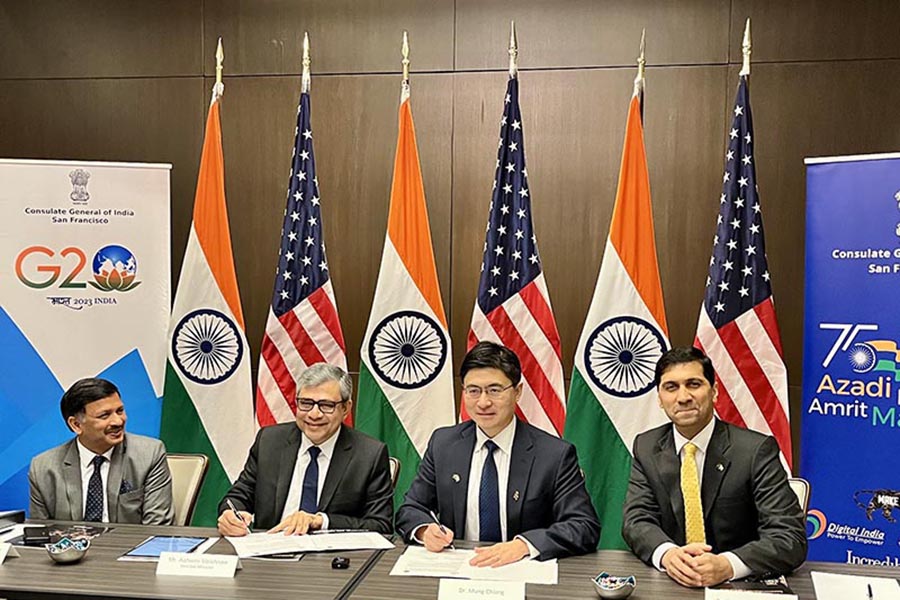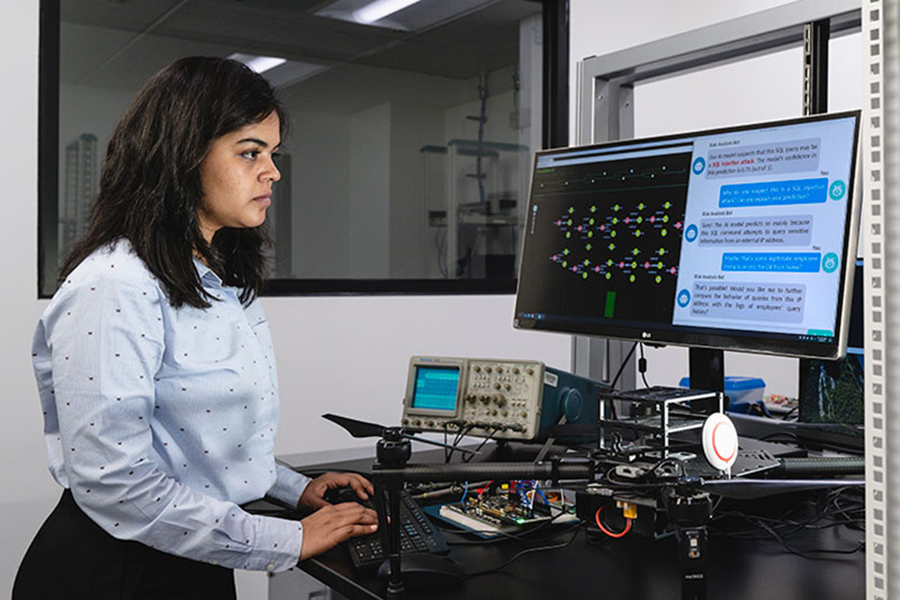Purdue ECE to play a key role in new 3-pronged 'Purdue Computes' initiative

Empowering faculty, research, and semiconductor innovation at Purdue University
As student interest in computing-related majors and the societal impact of AI and semiconductor chips continues to rise rapidly, Purdue University is embarking on a major initiative, PurdueComputes. The effort consists of three dimensions: academic resource of computing departments, strategic artificial intelligence research, and semiconductor education and research. The Elmore Family School of Electrical and Computer Engineering will play a major role in the success of Purdue Computes.
The first pillar is a significant investment in Purdue’s computing faculty:
-
Similar to the Purdue model of Agricultural and Biological Engineering, which has ranked No. 1 in the country, the Department of Computer Science will have affiliations with both the College of Science and the College of Engineering. Productive collaborations spanning computer engineering and other areas in the Elmore Family School of Electrical and Computer Engineering, which offers a minor in AI applications, will follow.
-
Over the next five years, across Computer Science, Computer Engineering and related departments, 5 new top-notch faculty hires are anticipated, along with staff and support resources to ensure quality education for some of the fastest-growing undergraduate and graduate programs on campus.

The second pillar of Purdue Computes comprises strategic research in AI, specifically at the intersection between the physical and the virtual. The Purdue Institute for Physical AI (IPAI) will be the cornerstone of the University’s unprecedented push into bytes-meet-atoms research. IPAI’s creation is based on extensive faculty input and unique strength of research excellence at Purdue.
-
Over the next five years, 50 new top-notch faculty will be recruited, with primary appointments in various academic departments and affiliation with IPAI, and over the same time span a total of 250 Presidential Doctoral Excellence Awards will be deployed to recruit the best PhD students in the field.
-
Open agricultural data, neuromorphic computing, deep fake detection, edge AI systems, smart transportation data and AI-based manufacturing are among the cutting-edge topics to be explored by IPAI through current and emerging university research centers.
-
IPAI will include an advisory board consisting of alumni in leadership positions throughout the AI industry. This includes Tesla, Intel, Apple and Ring.
The third pillar recognizes that all computing, including AI, takes place in physical substrates such as semiconductor chips:
-
$100 million of semiconductor facilities is planned, with Phase 1 of $49 million already approved for capital project and equipment procurement to upgrade the Birck Nanotechnology Center.
-
The new facility and equipment will further position Purdue as a national leader in workforce through the Semiconductor Degrees Program, in research through CHIPS and Science Act-funded national institutes, and in partnership with both the industry supply chain and like-minded nations globally.
Purdue Computes will connect faculty and students from across the institution and enable the university to advance to the forefront with unparalleled excellence at scale.
